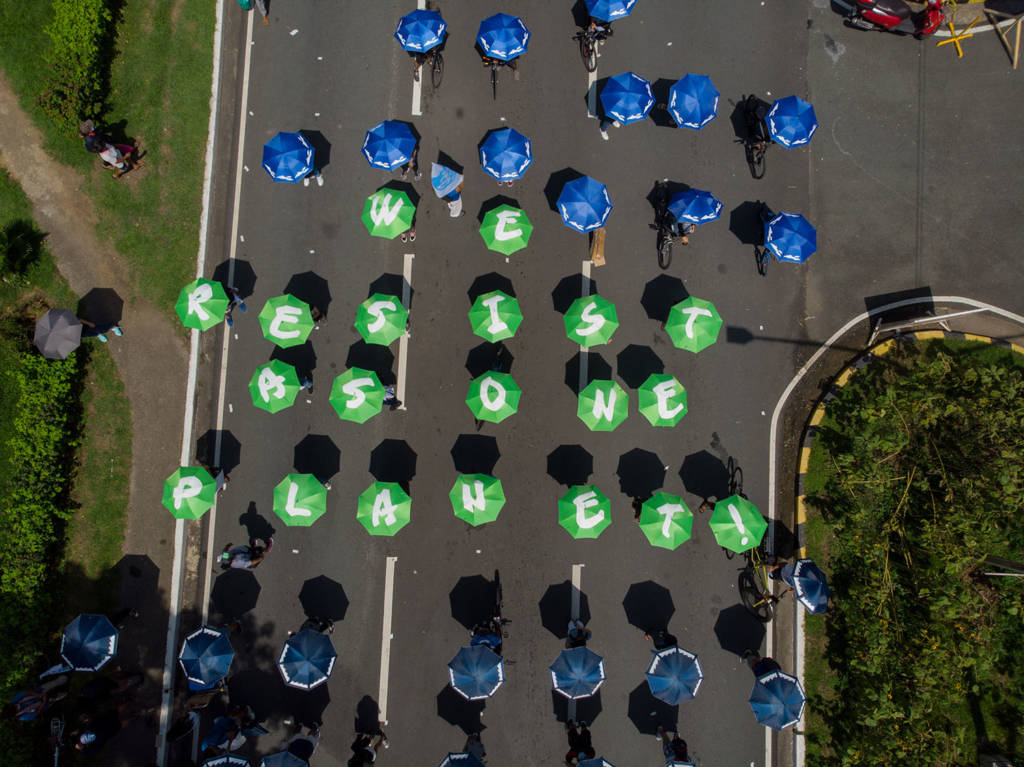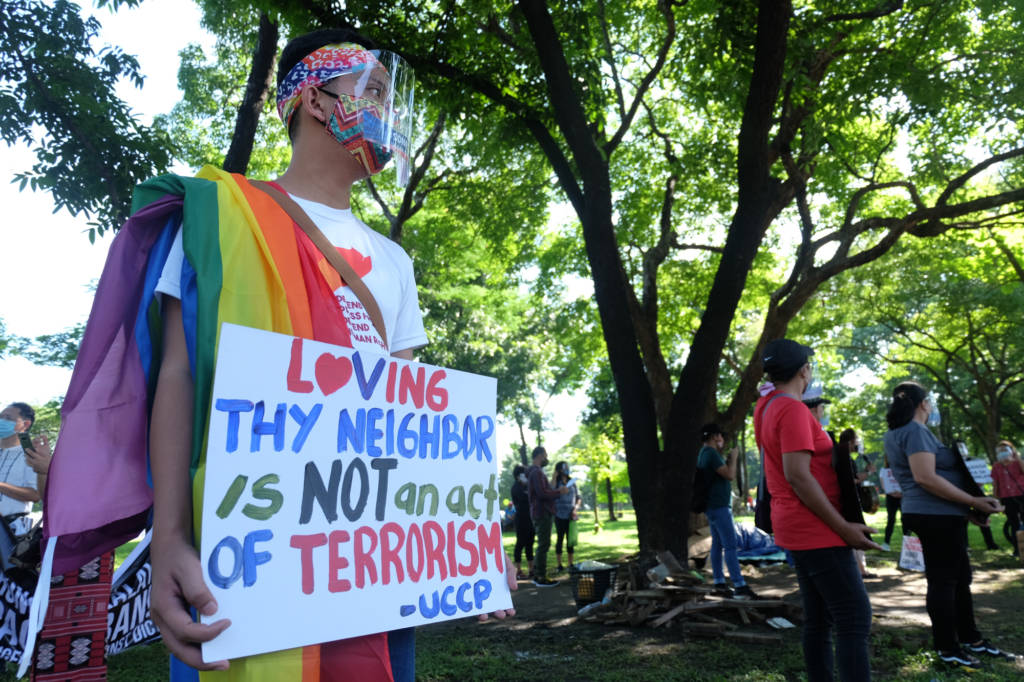Rio Constantino
Time and again during the pandemic, Filipinos activists have helped fill the gaps in government responses to the virus. When public transport was suspended last March, for example, people quickly organized themselves into bike-lending and sharing communities to help stranded front-liners get to work. Many groups organized donation drives for jeepney drivers, whose livelihoods have been interrupted by the extended lockdown.
During crises, it’s vital Filipinos respond with solidarity to widespread social distress. Instead of flattening citizens with a sense of agency, far better to sow conditions which enable acts of citizenship to thrive and multiply: a free press to inform Filipinos about critical issues, and provide the information needed to equip communities against the pandemic; guaranteed human rights and freedoms, which allow people to tackle pressing issues without fear of arbitrary reprisal and arrest.
Yet last July 4, the Anti-Terror Bill was signed into law, endangering Filipinos with vague definitions of terrorism and unconstitutional, warrantless arrests. Soon after, responding to the president’s dog whistle when he threatened ABS-CBN last December, congress denied the network’s franchise renewal, in the process cutting off a vital news source right when prompt updates about the outbreak are needed the most.
Instead of encouraging Filipinos to be active citizens during a crisis, the government seems intent on doing the opposite, in the process doing far more harm than good. By signaling their hostility to dissent, officials shoot themselves in the foot by discouraging the very activism that’s mobilized communities against the pandemic. The government’s blind urge to quash imaginary threats is baffling, particularly when COVID-19 cases look set to exceed the 80,000 mark.

As part of the thousands who protested, Environmental advocates and climate justice activists join the mass protests on Duterte’s State of the Nation Address to denounce the regimes anti-people and ecological destructive policies expressed their defiance by bringing together umbrellas to form the sky, the land, and the sea, with the call “WE RESIST AS ONE PLANET” written on them, a reminder to the government to heed the call of the people to protect our environment. Photo: Dino Dimar
When business clubs, church groups, and labor organizations, along with scores of political and youth organizations, continue to protest the Anti-Terror Law and demand the restoration of ABS-CBN’s franchise, it’s only because a great many Filipinos have their priorities set straight. Instead of suppressing dissent, time would be better spent securing changes relevant for both the pandemic and the climate crisis: universal healthcare, stronger social safety nets, dignified livelihoods, and better support for the essential workers like nurses and truck drivers who keep society afloat.
COVID-19 has shown just how fragile our economic system is. It’s become increasingly clear age and prior health conditions aren’t the only co-morbidities out there. How many of the people infected could not afford to stay home? How many belonged to households who could not afford the safety of a private car?
With the impacts of climate change looming large in the near future, science advises governments to expect even more disruptions. Will we continue maintaining the same unjust and unsustainable society, so vulnerable to external shocks, we had before the pandemic? The climate crisis and COVID-19 outbreak are bad enough; will we continue exposing ourselves to more new illnesses, more novel coronaviruses, by destroying essential ecosystems?
Democracy cannot function with a docile population. Citizenship, and the institutions which instill and enable it, becomes even more important, not less, during crises like the COVID-19 pandemic.

A member of the United Church of Christ in the Philippines joins the mass protests on Duterte’s State of the Nation Address to denounce the regimes’ anti-people and ecological destructive policies. Photo: AC Dimatatac
